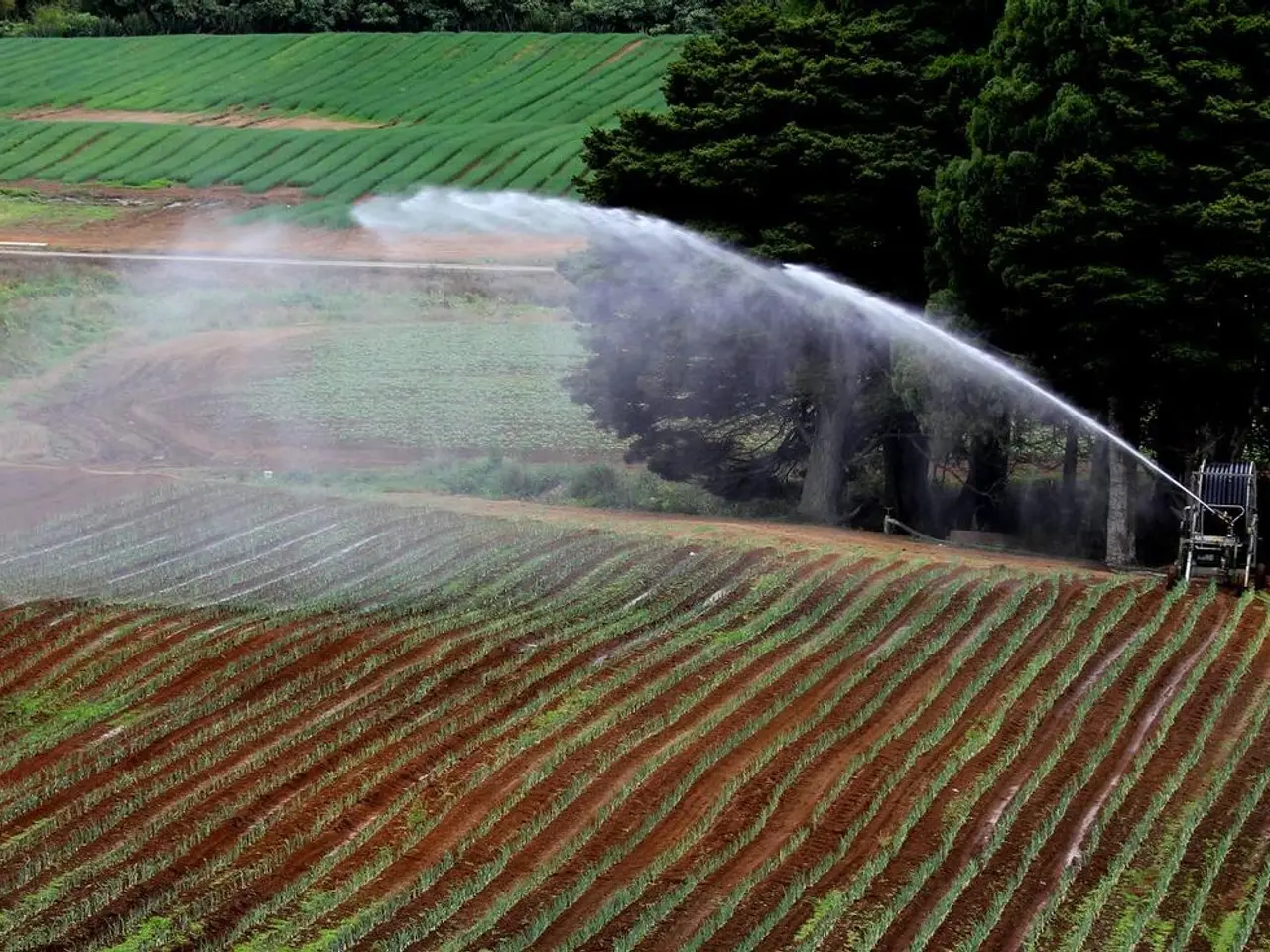Relaxing Fertilizer Regulations: A Controversial Approach by Agriculture Minister Rainer
Agriculture Minister Rainer aims to relax fertilizer regulations - Agriculture Minister seeks leniency on fertiliser regulations
In a bid to lessen bureaucratic red tape, Alois Rainer, the Federal Minister of Agriculture, has proposed easing fertilizer requirements for farmers. Rainer believes that excessive regulations are hindering economic growth within the agricultural sector.
To date, farmers have been required to maintain detailed records of nutrient intake and excretion. German regulations even exceed EU guidelines. However, Rainer argues that these meticulous requirements should be eliminated, stating, "Enough is enough!"
The Nutrient Balance Ordinance, introduced in 2018 by the previous grand coalition, required businesses of a particular size to record the nutrients entering their farms, such as in feed, and those leaving, such as in manure. This effort aimed to resolve a longstanding dispute with the EU Commission over nitrate contamination in groundwater in various regions in Germany.
Rainer's predecessor, Cem Özdemir (Greens), had initiated a reform of the Fertilizer Law in 2023, which led to the EU Commission terminating its investigation. Unfortunately, the new fertilizer law stalled due to resistance from the federal states. Among other issues, there was no further development, and no expansion of the Nutrient Balance Ordinance. Now, the government plans to scrap the ordinance entirely.
The Federal Ministry of Agriculture maintains that the Nutrient Balance Ordinance is cumbersome, impractical, and ineffective. However, representatives from the water industry and environmental associations have vehemently criticized Rainer's plans, going so far as to call them shortsighted and potentially detrimental to water quality.
Rainer's plan is to simplify the creation of a nutrient balance through a fast-track procedure, foregoing any further developments and digitization. His critics fear that this may lead to increased nitrate inputs in various regions, potentially exacerbating the nitrate contamination problem.
- Alois Rainer
- CSU
- EU Commission
- Federal Ministry of Agriculture
- EU
Insights:
- The proposed changes in the fertilizer regulations aim to reduce bureaucracy for farmers, as detailed records are not mandated by the EU.
- Environmentalists and water suppliers have expressed concern over the potential negative impact on water quality stemming from the proposed changes, emphasizing the importance of environmental protection.
- The EU Commission 's stance on this specific plan isn't explicitly mentioned, but the federal government frames the changes as consistent with EU regulations.
- The EC countries, through the EU Commission, have regulations in place regarding nutrient intake and excretion by farms, yet some EC countries, such as Germany, have stricter guidelines compared to the EU.
- Amid a debate over nitrate contamination in groundwater, the EC countries implemented the Nutrient Balance Ordinance in 2018, which required detailed records of nutrients entering and leaving farms.
- The proposed modification by the Federal Minister of Agriculture, Alois Rainer from the EC country of Germany, seeks to streamline the creation of a nutrient balance as part of a plan aimed at reducing bureaucratic red tape, while drawing criticism from environmentalists and water industry representatives concerned about potential harm to water quality.







